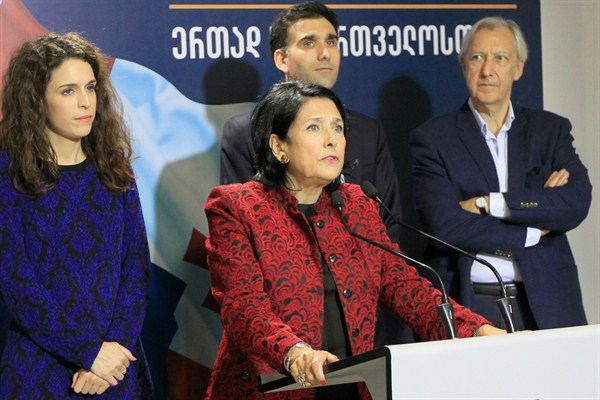In the South Caucasus state of Georgia, Salome Zurabishvili, who was backed by the ruling Georgian Dream party, won a bitterly contested presidential runoff last week against Grigol Vashadze, who was supported by the opposition United National Movement. Zurabishvili’s 16-point margin of victory was unexpectedly wide given her razor-thin lead in the first round of voting held in October, and the election process was marred by accusations of electoral irregularities and an unlevel playing field. In an interview with WPR, Paul Stronski, a senior fellow in the Russia and Eurasia Program at the Carnegie Endowment for International Peace, discusses the election results and explains why entrenched political polarization could spell trouble for the future of Georgian democracy.
World Politics Review: What accounts for the heated and aggressive tone of some of the rhetoric during the presidential campaign in Georgia, and how did Zurabishvili manage to defeat her opponent in the runoff?
Paul Stronski: Georgian society has been politically divided for years, so the heated tone of this election was not all that surprising, although some of the rhetoric was more extreme than normal. The general debasement of politics around the globe—most visibly seen in the United States since 2016—may have contributed to the candidates’ decisions to go low in this campaign, but the polarization of Georgia’s political space likely played an important role as well.

